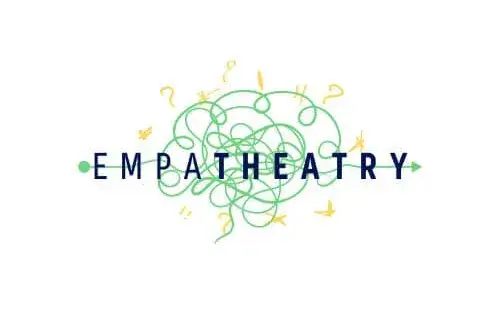
Inclusive theatre guidelines to empower youth from diverse backgrounds, fostering emotional intelligence and personal growth.
In the framework of the Empatheatry project, a set of guidelines was developed for working with young people with fewer opportunities. These guidelines aim to empower youth workers, theatre educators, mentors, teachers, and other professionals to create inclusive theatre activities that foster the holistic development of youth. The target group includes young individuals from diverse backgrounds, such as those from socially disadvantaged contexts (e.g. due to poverty, race, religion, ethnic origin, gender, sexual orientation, or physical disability) and young people experiencing various forms of mental, intellectual, emotional, behavioural, or neurodevelopmental disorders (e.g. ADHD, autism). The document provides both theoretical insights and practical methods.
Theoretical framework
The guidelines are grounded in international research conducted across Slovenia, Belgium, Spain, and Ireland, incorporating findings from focus groups, interviews with youth professionals, and existing literature. Key principles identified include:
- Creating a safer environment: This involves promoting trust, diversity, and open communication. Efforts to ensure psychological and physical safety enable youth to express themselves freely.
- Flexibility in methodology: Activities must be adaptable, allowing young participants to influence their design and ensuring alignment with their interests and needs.
- Inclusivity: Adapting to individual needs and fostering a non-judgmental atmosphere supports participation, particularly for those with mental health or neurodevelopmental disorders.
- Theatrical methodologies: Techniques like improvisation and body expression are highlighted, emphasising reflective practices over final performances.
Practical Recomendations
The second part of the document offers actionable strategies for sustaining engagement and fostering emotional intelligence (EI):
- Building relationships: Team building, individualised attention, and a positive environment are key. Activities should encourage collaboration and self-confidence.
- Long-term planning: Setting goals and involving youth in decision-making ensures commitment and ownership of projects.
- Addressing emotional intelligence: Activities aligned with Daniel Goleman’s EI components (self-awareness, self-regulation, empathy, social skills, and motivation) support personal and social growth. Examples include mindfulness exercises, emotion check-ins, and role-playing scenarios.






Add new comment